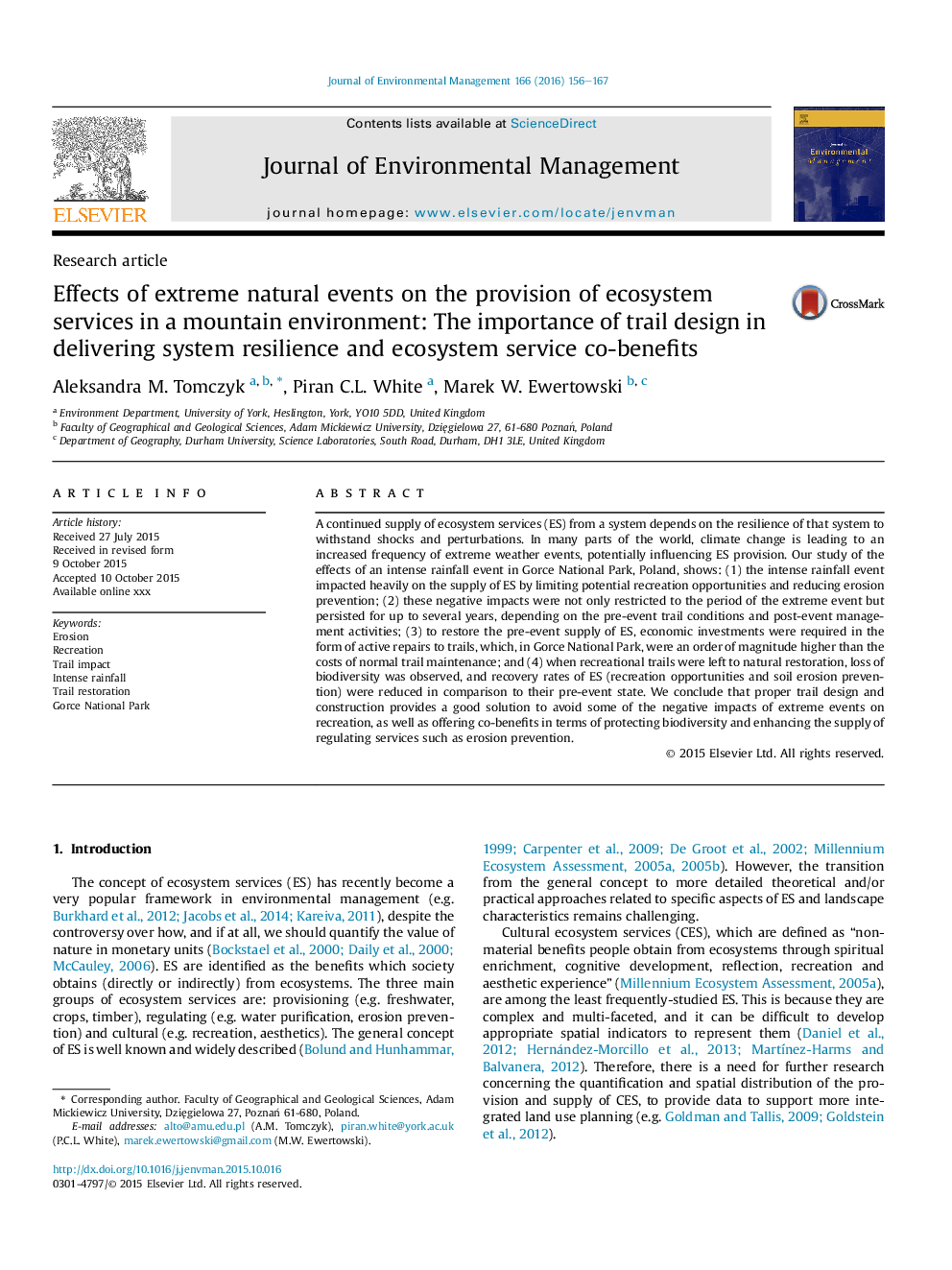| Article ID | Journal | Published Year | Pages | File Type |
|---|---|---|---|---|
| 7481372 | Journal of Environmental Management | 2016 | 12 Pages |
Abstract
A continued supply of ecosystem services (ES) from a system depends on the resilience of that system to withstand shocks and perturbations. In many parts of the world, climate change is leading to an increased frequency of extreme weather events, potentially influencing ES provision. Our study of the effects of an intense rainfall event in Gorce National Park, Poland, shows: (1) the intense rainfall event impacted heavily on the supply of ES by limiting potential recreation opportunities and reducing erosion prevention; (2) these negative impacts were not only restricted to the period of the extreme event but persisted for up to several years, depending on the pre-event trail conditions and post-event management activities; (3) to restore the pre-event supply of ES, economic investments were required in the form of active repairs to trails, which, in Gorce National Park, were an order of magnitude higher than the costs of normal trail maintenance; and (4) when recreational trails were left to natural restoration, loss of biodiversity was observed, and recovery rates of ES (recreation opportunities and soil erosion prevention) were reduced in comparison to their pre-event state. We conclude that proper trail design and construction provides a good solution to avoid some of the negative impacts of extreme events on recreation, as well as offering co-benefits in terms of protecting biodiversity and enhancing the supply of regulating services such as erosion prevention.
Keywords
Related Topics
Physical Sciences and Engineering
Energy
Renewable Energy, Sustainability and the Environment
Authors
Aleksandra M. Tomczyk, Piran C.L. White, Marek W. Ewertowski,
